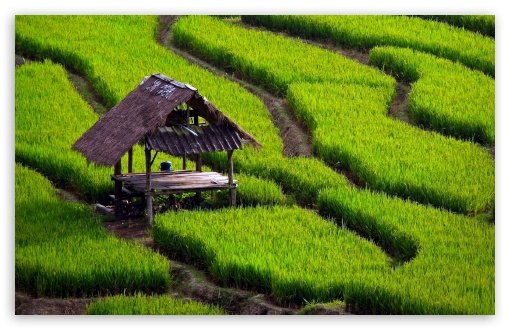Kampai! Japanese Make Ethanol From Straw

Kawasaki Heavy Industries has developed “technology to produce fuel for cars from farm waste at a cost that is competitive with imported ethanol made from food products, such as sugar cane,” Reuters says.
Ethanol “can help reduce carbon dioxide (CO2), which contributes to global warming, but the cost of production and competition with food supplies tempers its appeal,” the wire says. A study showed that ethanol could be made from rice straw at a cost of $1.60 per gallon. Adding the costs for gathering straw waste, the gallon would cost $3.20 to make. That compares with $3.20 to $4 per gallon of imported Brazilian ethanol.
Not so fast, says Japan’s farm ministry, figuring that “ it would take about five years before commercial production of ethanol from non-food products would be economically viable.”

Bertel Schmitt comes back to journalism after taking a 35 year break in advertising and marketing. He ran and owned advertising agencies in Duesseldorf, Germany, and New York City. Volkswagen A.G. was Bertel's most important corporate account. Schmitt's advertising and marketing career touched many corners of the industry with a special focus on automotive products and services. Since 2004, he lives in Japan and China with his wife <a href="http://www.tomokoandbertel.com"> Tomoko </a>. Bertel Schmitt is a founding board member of the <a href="http://www.offshoresuperseries.com"> Offshore Super Series </a>, an American offshore powerboat racing organization. He is co-owner of the racing team Typhoon.
More by Bertel Schmitt


































Comments
Join the conversation
If you just used the straw to co-fire an electrical generation plant, and used the electricity to feed EVs, you would get about 3 times the miles per tonne of straw (that's not a guess - it's actually calculated). So long as fossil fuels are still being used to generate electricity, I don't see the environmental advantage of ethanol, cellulosic or otherwise. The real technological hurdle isn't making ethanol from cellulose, it is making EVs attractive enough that a significant number of people will actually use them.
Good information, but it depends on how the technology proliferates. So if this company gets investment and starts/producing distributing cheaper ethanol, make it so. But if this firm simply sells out the patent/process to Satan, er Monsanto, nothing improves.
I make a point to go out of my way to purchase Ethonal free gas, it is the devil, no need to explain here. But it's funny they believe reducing CO2 emmisions is a reason to do anything, cute in a way.
Below are some links with more detailed project descriptions. The Kawasaki project has three steps: pulverizing, hydrothermal saccharification and yeast fermentation. The first speaks for itself. Hydrothermal saccharification is nothing more than 'cooking' it in pressurized water from 300F to 480F. With the cooking you break down the cellulose into glucose (hence saccharification). You have to optimize between temperature, reaction time and equipment costs. The research is mostly needed on getting the right reaction conditions for your biomass source otherwise you end up having decomposed too much or too little glucose. Having a homogenous feedstock is certainly going to help. The glucose you feed to some yeast that makes alcohol/ethanol just like in brewing beer/wine/spirits. The other projects mentioned use similar techniques but sometimes the process is 'helped' with alkaline components. I hope somebody finds this information useful. I'm working on a similar process but then with verge grass in the Netherlands. http://www.asiabiomass.jp/english/topics/1101_02.html http://www.khi.co.jp/english/news/detail/20101006_2.html